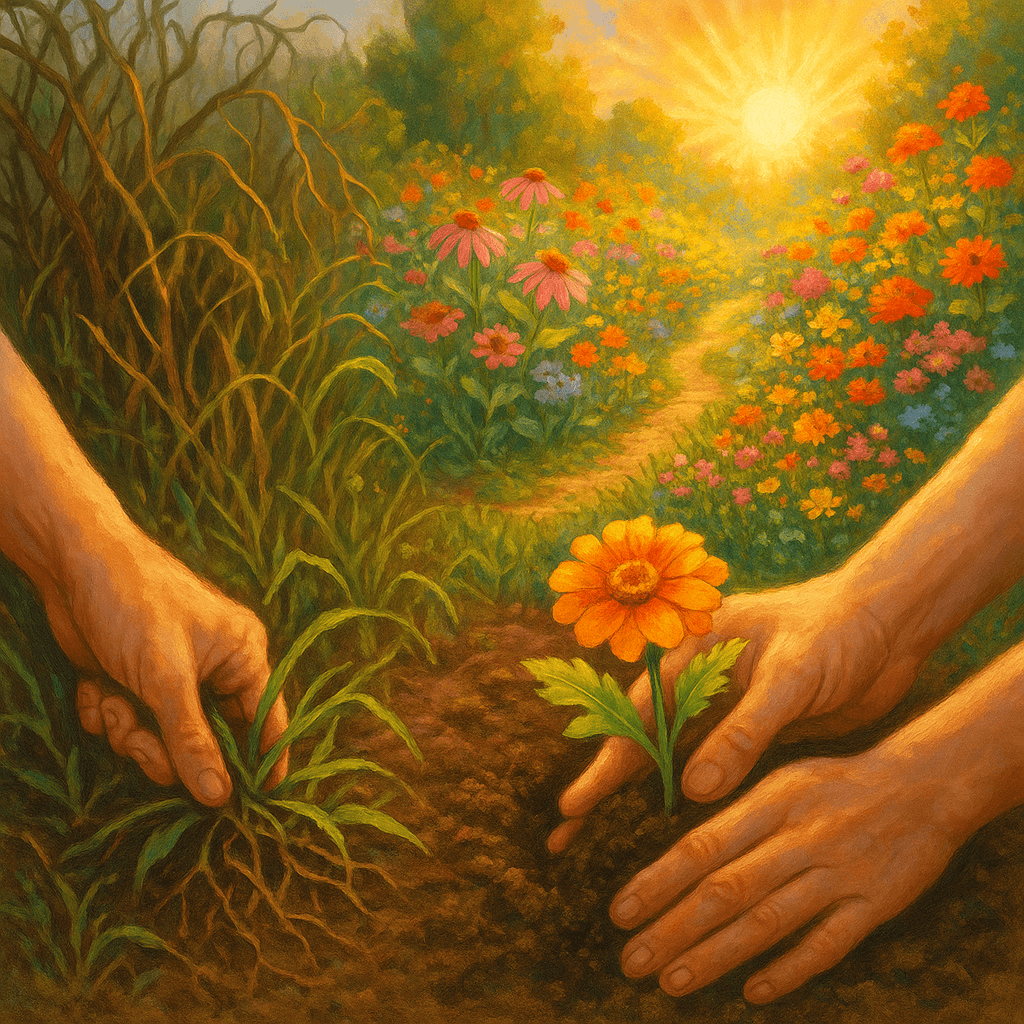Cultivating Happiness: Lessons from the Garden of Life

Plant dreams, pull weeds, and grow a happy life. — Lois Cameron
—What lingers after this line?
One-minute reflection
What does this quote ask you to notice today?
Sowing the Seeds of Aspiration
Lois Cameron’s words invite us to approach our lives as gardeners tend to their soil, beginning with the planting of dreams. Just as seeds hold the promise of a bountiful harvest, aspirations give direction and hope, sparking our motivation for growth. The act of planting symbolizes intention—deliberately choosing the shapes we wish our future to take. This outlook echoes throughout literature and philosophy; for example, in Ralph Waldo Emerson’s essays, he encourages readers to 'dare to live the life you have dreamed.'
The Importance of Regular Maintenance
Transitioning from aspiration to effort, Cameron underscores the necessity of 'pulling weeds.' In every garden, unwanted plants threaten to choke new growth, serving as a metaphor for unhelpful habits, negative thoughts, or toxic influences in our lives. Ongoing self-reflection, much like the diligent gardener's hand, is required to recognize and remove these obstacles. The Buddhist practice of mindfulness, described in Thich Nhat Hanh’s works, similarly teaches the value of observing and gently uprooting mental clutter to create room for happiness.
Nurturing Growth through Small Acts
With the groundwork laid and distractions minimized, nurturing becomes essential. Just as flowers bloom with water and light, happiness flourishes through consistent acts of kindness, gratitude, and self-care. Positive psychology research, such as that by Martin Seligman, illustrates that small, habitual actions—keeping a journal of thanks or helping others—ultimately nurture a thriving and joyful life. This process is gradual, reminding us that growth is both a journey and a discipline.
Harvesting Joy from Effort
As these cultivated dreams and efforts mature, life’s garden offers moments of harvest. The sense of fulfillment and purpose found in achievements—big or small—reflects the intricate link between intention, diligence, and joy. These moments remind us of the cyclical rewards embedded in persistence, much as a gardener is rewarded with blossoming flowers or fruitful crops. Drawing from Maya Angelou’s wisdom, 'We may encounter many defeats but we must not be defeated,' emphasizing the satisfaction that comes from perseverance.
Embracing Life as a Continual Process
Finally, Cameron’s metaphor highlights that happiness is a process, not a one-time event. Gardens require care across seasons; likewise, life demands ongoing adaptation and hope. This continual tending shapes our perspective, teaching resilience and patience. As the cycle repeats—planting, weeding, nurturing, and harvesting—we come to see happiness not as a destination but as the result of how we engage with the everyday landscape of our lives, ever open to new possibilities and growth.